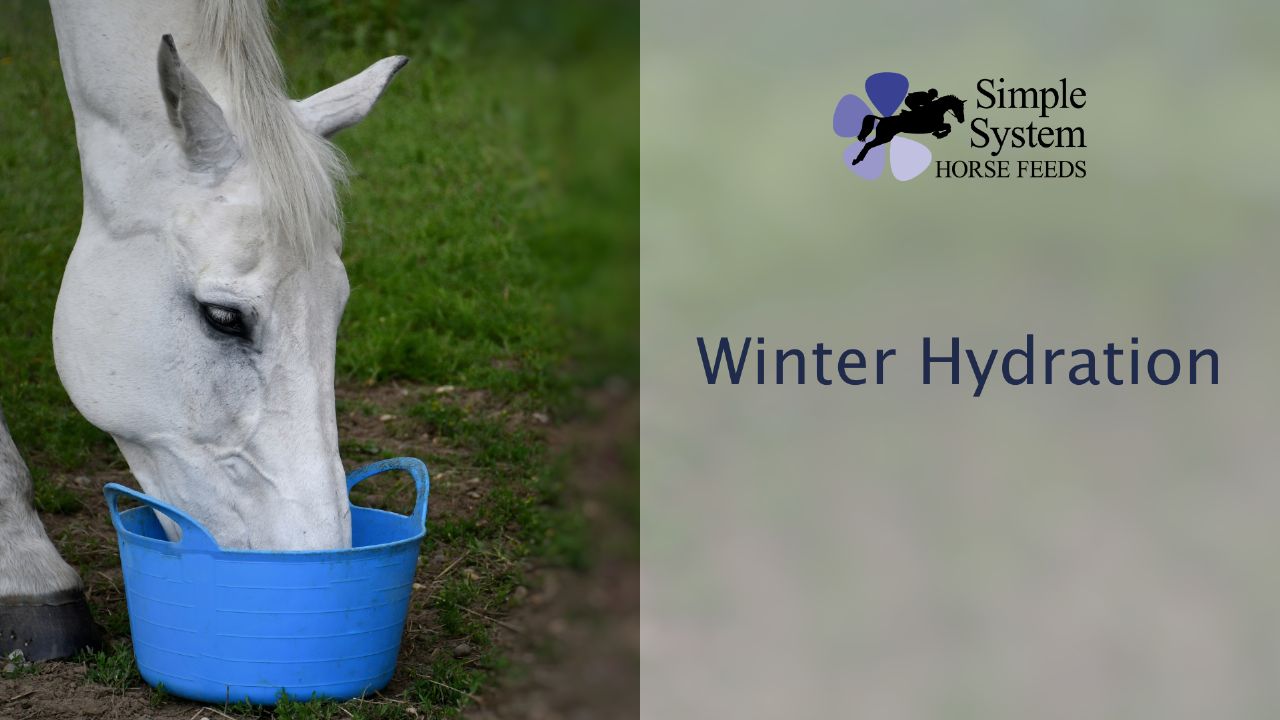Why do we recommend feeding horses from ground level?
How does the horse's jaw work? What happens if horses eat above ground level? Read the article to learn more...

When the weather turns cold, horses are less inclined to drink. Coupled with sudden changes in management, such as more time spent stabled or eating more hay, this can increase the risk of impaction colic.
Ensure that exercise is part of your daily routine for stabled horses. Walking out in hand helps to keep the gut moving, reducing the risk of impaction and generating warmth in the process. There's plenty we can do to encourage our horses to drink too...
Cold weather greatly increases the horse's requirements. Be prepared to watch the weather forecast and put extra feed on to soak if necessary.
If you'd like to discuss your horse's needs, our Feed Line nutrition team will be happy to help. You can reach them on 01728 604 008, by email to info@simplesystem.co.uk or by completing our online form.
How does the horse's jaw work? What happens if horses eat above ground level? Read the article to learn more...
We're thrilled to be adding an exiting new event to the calendar for 2026!
Horses’ teeth change throughout their lives - they are continually growing and continually wearing, as they chew and grind their grazing and forage.